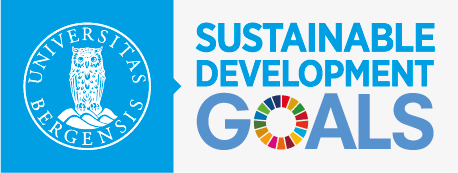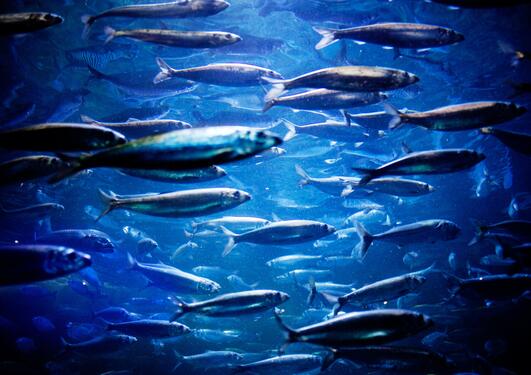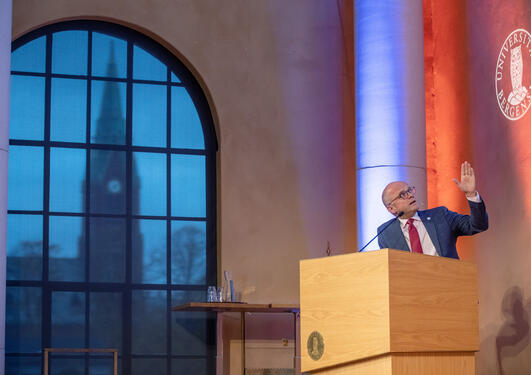The role of research and capacity-building in the United Nations BBNJ negotiations
Side event on the conservation and sustainable use of marine Biological diversity in areas Beyond National Jurisdiction (BBNJ) process by the University of Bergen In collaboration with the Permanent Mission of Palau to the United Nations and the Intergovernmental Oceanographic Commission (IOC) of UNESCO.

Main content
The ocean supplies vital ecosystem services to a burgeoning world population. Globally, the ocean is exposed to multiple stressors, but retains potential for supplying more food, energy, transportation, and crucial genetic resources. Controversies and conflicts of interest are abundant, as exemplified by the discrepant views of a freedom of the high seas and the preservation of a common heritage of humankind.
Speakers at the event:
- Ambassador Ngedikes Olai Uludong, Palau’s Permanent Representative to the United Nations, who has a key role at the BBNJ negotiations as Facilitator of the IGC’s working group on capacity building and transfer of marine technology.
- Professor Peter M. Haugan, former chair of the Intergovernmental Oceanographic Commission (IOC), will put forward the ocean science perspective on the BBNJ process and emphasise the growing importance of the science-policy nexus in the ongoing negations.
- Dr. Yimnang Golbuu, Chief Executive Officer of the Palau International Coral Reef Centre (PICRC) , will address the BBNJ process from a Pacific science viewpoint.
- Mr. Kjell Kristian Egge, International Law Adviser of the Law of the Sea and Head of Delegation to the UN BBNJ negotiations, Ministry of Foreign Affairs, Norway.
Moderator: Professor and ocean anthropologist Edvard Hviding of the University of Bergen, who follows the IGC-BBNJ as an accredited delegate of the Pacific Small Island Developing States (PSIDS).
UNCLOS and the SDGs
The “constitution” for the ocean, the United Nations Convention on the Law of the Sea (UNCLOS), remains the comprehensive framework for global legal ocean governance, while the 2030 Agenda and its 17 Sustainable Development Goals (SDGs) add direction and create impetus for the conservation and sustainable use of the ocean. While SDG 14 – Life Below Water – is of direct relevance, the SDGs on the whole are all closely interlinked and many are relevant for ocean governance. We need only mention SDG 13 – Climate Action – to illustrate this.
From 2018, a major event in the history of UNCLOS is the Intergovernmental Conference (IGC) to negotiate a legally binding instrument under UNCLOS on the conservation and sustainable use of marine Biological diversity in areas Beyond National Jurisdiction (BBNJ). The IGC-BBNJ follows years of preparatory work and will continue negotiations until 2020 when the international legally binding instrument (ILBI) is envisaged to be complete. The IGC-BBNJ comes at a time of increased focus on environmental, economic and social sustainability of the planet as a whole, facing stark realities of climate crisis and biodiversity loss. The world’s High Seas – those parts of the ocean that are not managed under national jurisdictions as 200-mile Exclusive Economic Zones (EEZs) represent potential resource wealth both for adjacent maritime and coastal states and as common heritage of humankind, as well as urgent gaps in scientific knowledge.
Contestations over the High Seas are diverse globally, and demonstrate the need for the ILBI under UNCLOS that the IGC-BBNJ is developing. The IGC has proceeded from a basic focus on four areas of particular attention, each of which is being developed through plenary debates among UN member states and a wide range of stakeholders including NGOs:
- measures such as area-based management tools, including marine protected areas
- capacity-building and the transfer of marine technology
- environmental impact assessments
- marine genetic resources including questions on the sharing of benefits
The significant role of ocean science
While the ongoing BBNJ negotiations clearly represent a wide range of complex legal challenges, this Side Event takes a different perspective and focuses on the multiple, significant roles of ocean science in its widest sense. With partners and speakers from the scientific community, diplomacy and the United Nations system, we want to explore and exemplify current scientific challenges for global ocean governance of BBNJ, as well as account for the increased involvement of research in the ongoing IGC and the place of science in the ILBI.
The panel includes prominent representatives all committed to developing this specific science-policy nexus for BBNJ. While the four areas of attention listed above certainly signify multiple ways in which science and technology are broadly relevant, the specific focus area of capacity-building and the transfer of marine technology is key to making explicit the range of research challenges for future governance of the world’s High Seas under UNCLOS and the ILBI for BBNJ.
The University of Bergen’s partners in co-hosting this side event – the Permanent Mission of Palau to the United Nations and the Intergovernmental Oceanographic Commission – are well positioned to cover the range of questions addressed. The IOC, through the UN Decade of Ocean Science, has a significant role in building capacity, facilitating sharing of data and transfer of marine techonoly, as well as in forging a science-policy nexus and contributing globally to building capacity and providing a scientific basis for BBNJ governance.
The Side Event aspires to provide an arena for exchange of science and policy ideas directly relevant to the IGC-BBNJ. There will also be discussion on how a BBNJ ILBI can contribute to the 2030 Agenda, including how science can be used to underpin this particular development.
Target audience
The target group for the Side Event are all parties with stakes in the science-policy nexus (diplomacy, politics, research, industry, etc). However, the event also aims to include an outreach component to connect with the general public, so as to create broader support for informed decision-making on the outcomes of the BBNJ negotiations.


